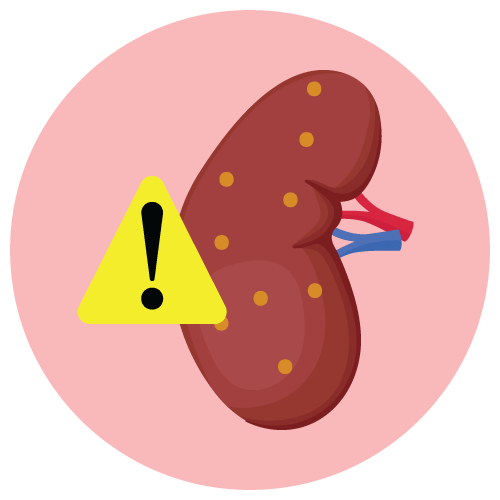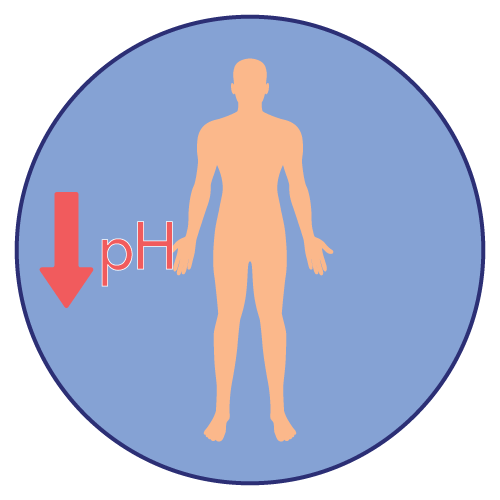| Name | Metformin Hydrochloride + Rosiglitazone |
| Classes |
Antidiabetic Agent Metabolic Agent Antidiabetic combination |
| Diseases |
Type 2 Diabetes Mellitus Hormonal Disorder |
Metformin Hydrochloride + Rosiglitazone
Metformin Hydrochloride + Rosiglitazone is combination drug. Metformin is a hypoglycemic agent belonging to the class Biguanides. Metformin enhances insulin sensitivity by boosting peripheral glucose uptake and utilization, decreasing hepatic glucose synthesis, and decreasing intestinal glucose absorption.
Rosiglitazone binds & activates to a nuclear receptor, called the PPAR-γ. PPAR-γ then binds to the DNA and retinoid X receptor at the same time and increases the transcription of insulin sensitive genes. The end result is that the peripheral tissues become sensitized to insulin.
Metformin Hydrochloride + Rosiglitazone is indicated as an adjunct to diet and exercise to improve glycemic control in adults with type 2 diabetes mellitus when treatment with both rosiglitazone and metformin is appropriate.
Patients Inadequately Controlled With Diet and Exercise: Metformin Hydrochloride + Rosiglitazone's recommended starting dose is 2 mg/500 mg once or twice daily. A starting dose of 2 mg/500 mg twice daily may be considered for patients with HbA1c >11% or fasting plasma glucose (FPG) >270 mg/dL. If patients are not adequately controlled after 4 weeks, the dose of Metformin Hydrochloride + Rosiglitazone may be increased in 2 mg/500 mg per day divided doses. The maximum daily dose of Metformin Hydrochloride + Rosiglitazone is 8 mg/2,000 mg.
Patients Inadequately Controlled With Rosiglitazone or Metformin Monotherapy:
- For patients inadequately controlled on metformin monotherapy, the usual starting dose of Metformin Hydrochloride + Rosiglitazone is 4 mg rosiglitazone (total daily dose) plus the dose of metformin already being taken. (See the table)
- For patients inadequately controlled on rosiglitazone monotherapy, the usual starting dose of Metformin Hydrochloride + Rosiglitazone is 1,000 mg metformin (total daily dose) plus the dose of rosiglitazone already being taken. (See the table)
| PRIOR THERAPY | Usual Metformin Hydrochloride + Rosiglitazone Starting Dose | |
| Total daily dose | Tablet strength | Number of tablets |
|
Metformin* |
|
|
|
1,000 mg/day |
2 mg/500 mg |
1 tablet twice a day |
|
2,000 mg/day |
2 mg/1,000 mg |
1 tablet twice a day |
|
Rosiglitazone |
|
|
|
4 mg/day |
2 mg/500 mg |
1 tablet twice a day |
| 8 mg/day |
4 mg/500 mg
|
1 tablet twice a day |
*For patients on doses of metformin between 1,000 and 2,000 mg/day, initiation of Metformin Hydrochloride + Rosiglitazone requires individualization of therapy.
Dose Titration:
Metformin Hydrochloride + Rosiglitazone is generally given in divided doses with meals, with gradual dose escalation. This reduces gastrointestinal side effects (largely due to metformin) and permits determination of the minimum effective dose for the individual patient.
If more glycemic control is required, the daily dose of Metformin Hydrochloride + Rosiglitazone can be increased by 4 mg rosiglitazone and/or 500 mg metformin increments.
Dose titration is recommended after increasing metformin dosage if patients are not adequately controlled after 1 to 2 weeks. If patients are not adequately controlled after 8 to 12 weeks after increasing their rosiglitazone dosage, dose titration is recommended.
The usual side effects of Metformin Hydrochloride + Rosiglitazone are as follows-
- Nausea/vomiting
- Diarrhea
- Headache
- Dyspepsia
- Upper respiratory tract infection
- Dizziness
- Edema
- Nasopharyngitis
- Abdominal pain
- Arthralgia
- Diarrhea
- Rosiglitazone: CONGESTIVE HEART FAILURE AND MYOCARDIAL ISCHEMIA
- Thiazolidinediones, including rosiglitazone, cause or exacerbate heart failure in some patients.
- After initiation of Metformin Hydrochloride + Rosiglitazone, and after dose increases, observe patients carefully for signs and symptoms of heart failure (including excessive, rapid weight gain, dyspnea, and/or edema). If these signs and symptoms develop, the heart failure should be managed according to current standards of care. Furthermore, discontinuation or dose reduction must be considered.
- Metformin Hydrochloride + Rosiglitazone is not recommended in patients with symptomatic heart failure. Initiation of Metformin Hydrochloride + Rosiglitazone in patients with established NYHA Class III or IV heart failure is contraindicated.
- A meta-analysis of 42 studies, most of which compared rosiglitazone to placebo, showed rosiglitazone to be associated with an increased risk of myocardial ischemic events. Three other studies, comparing rosiglitazone to some other approved oral antidiabetic agents or placebo, have not confirmed or excluded this risk. Available data on the risk of myocardial ischemia are inconclusive.
- Metformin hydrochloride: LACTIC ACIDOSIS
- Lactic acidosis can occur due to metformin accumulation. The risk increases with conditions such as sepsis, dehydration, excess alcohol intake, hepatic insufficiency, renal impairment and acute congestive heart failure.
- Symptoms include malaise, myalgias, respiratory distress, increasing somnolence and nonspecific abdominal distress. Laboratory abnormalities include low pH, increased anion gap and elevated blood lactate.
- If acidosis is suspected, discontinue Metformin Hydrochloride + Rosiglitazone and hospitalize the patient immediately.
- Use with nitrates is not recommended.
- Coadministration with insulin is not recommended.
- Assess renal function before starting therapy and at least annually.
- Avoid use in patients with evidence of hepatic disease.
- Warn patients against excessive alcohol intake.
- Promptly evaluate patients who develop laboratory abnormalities or clinical illness for evidence of ketoacidosis or lactic acidosis.
- Dose-related edema, weight gain and anemia may occur.
- Macular edema has been reported.
- Increased incidence of bone fracture in female patients.
- Measure hematologic parameters annually.
Contraindication
Contraindicated in patients hypersensitive to Metformin or Rosiglitazone or Pioglitazone.
None known.
- Initiation in patients with established NYHA Class III or IV heart failure.
- Use in significant renal disease or renal dysfunction.
- Use in acute or chronic metabolic acidosis.
- Use in patients undergoing radiologic studies involving intravascular administration of iodinated contrast materials.
 Bangla
Bangla English
English









